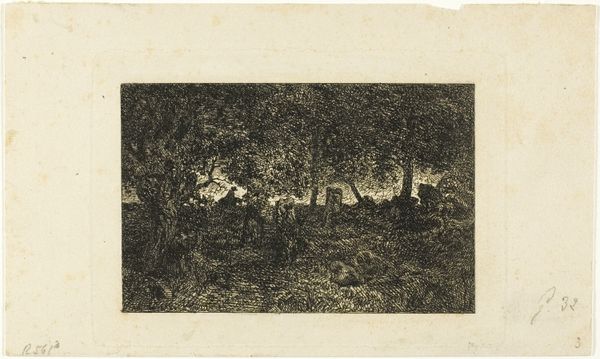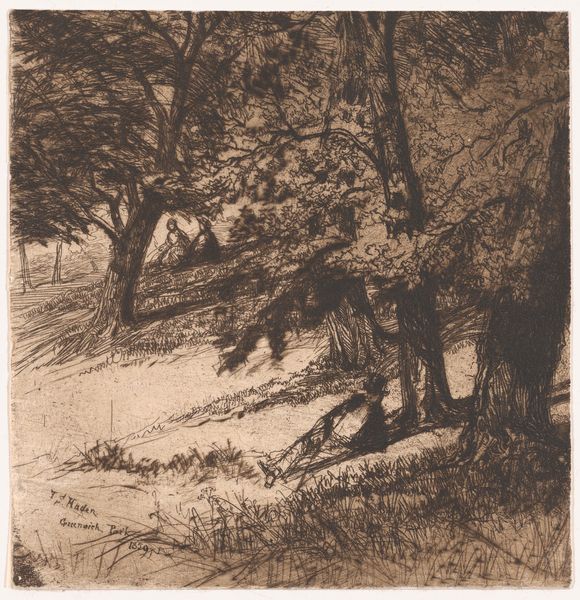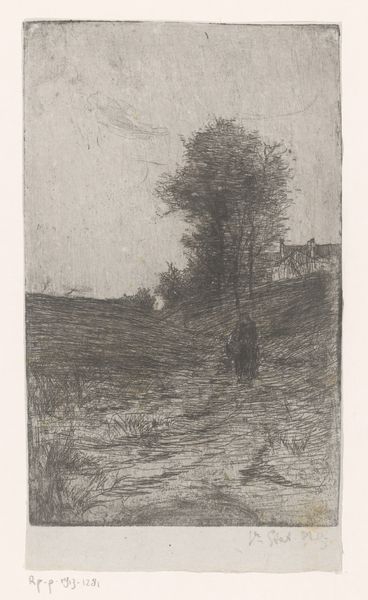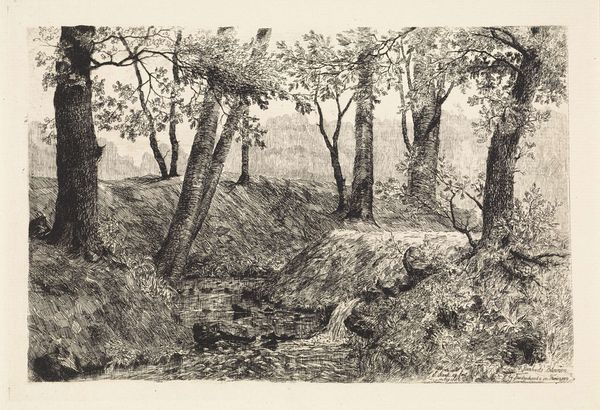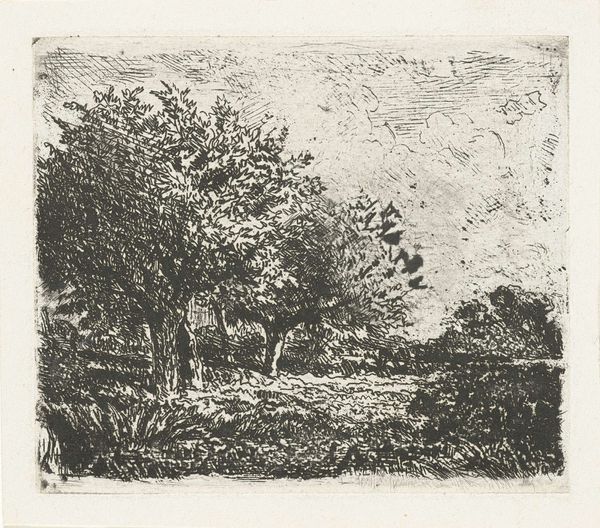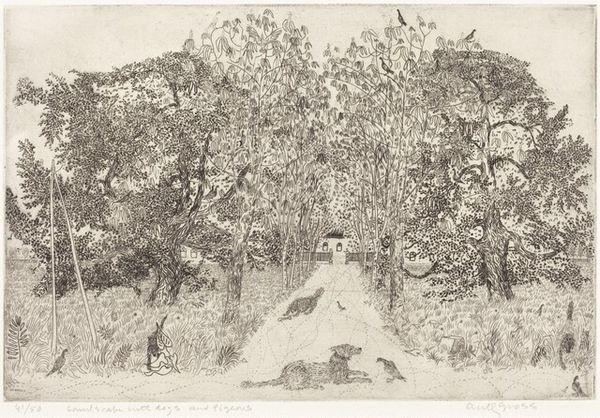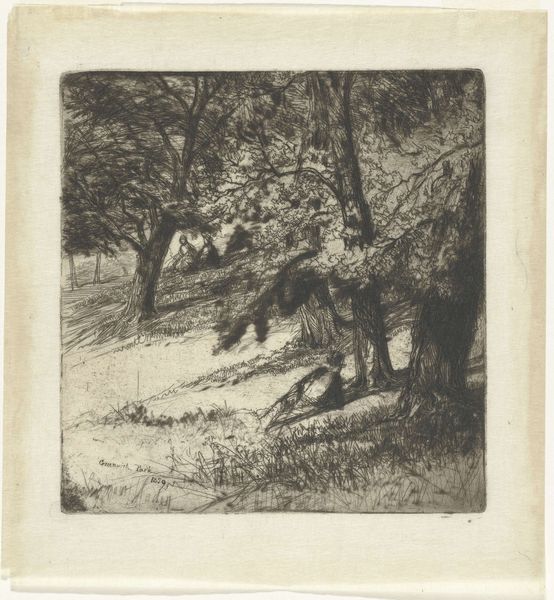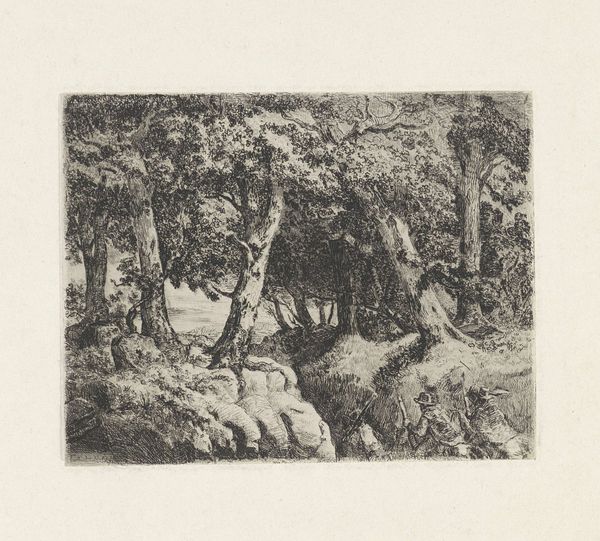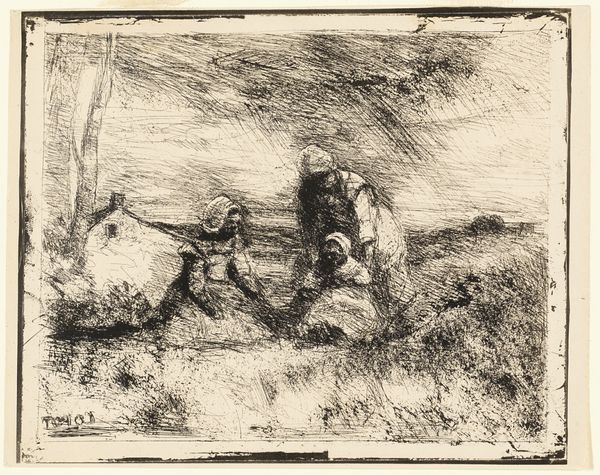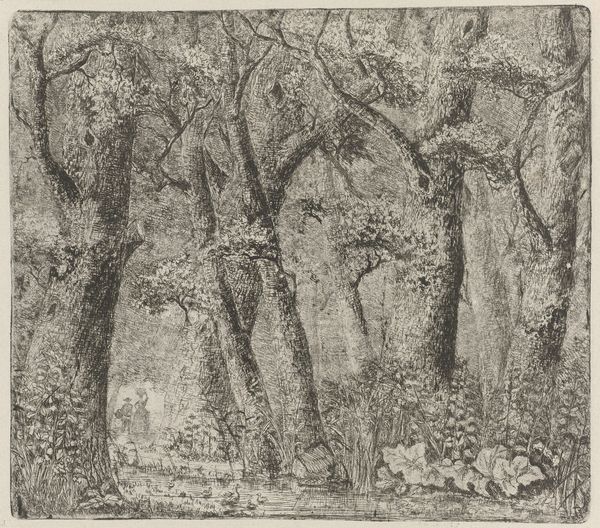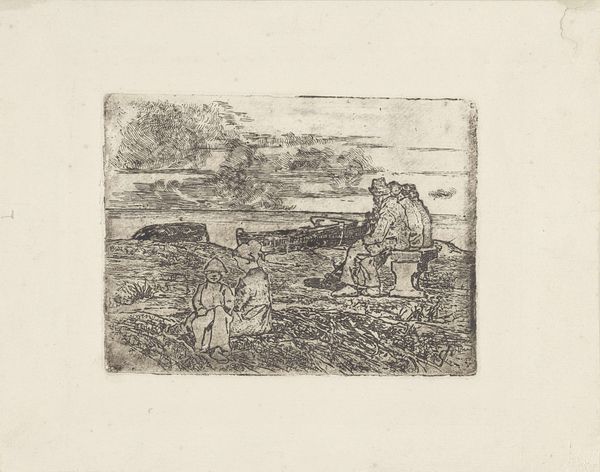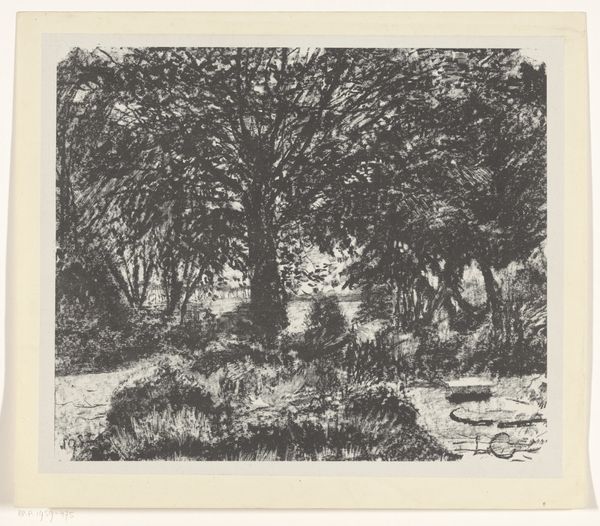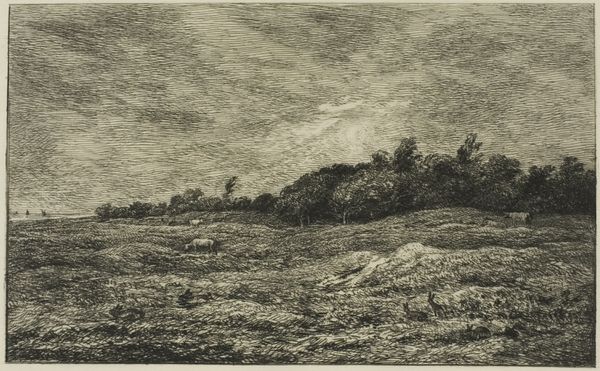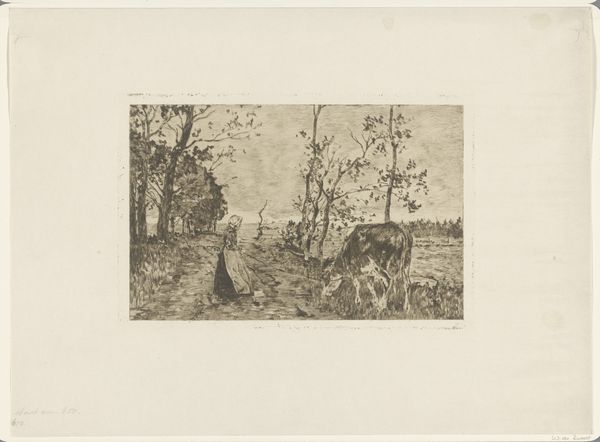
drawing, print, etching, paper
#
drawing
# print
#
etching
#
landscape
#
paper
#
italy
#
realism
Dimensions: 150 × 150 mm (image/plate); 414 × 285 mm (sheet)
Copyright: Public Domain
Curator: There’s a stillness to this print, isn't there? A sort of hushed quiet you feel in a field right before a storm. Editor: Precisely! And that mood is beautifully evoked in Giovanni Fattori's "Trees in a Meadow," a lovely little etching on paper currently held here at the Art Institute. It captures, I think, a certain strain of Italian realism from its time. Curator: You know, when I first saw it, I thought, "Ah, peace!" Then the longer I looked, I began to realize how actively the landscape’s been worked. Those scratches and scribbles forming the grasses aren’t simply passive impressions of nature. Editor: Absolutely. There's a very deliberate manipulation of the medium, etching, to create that textural density. It reminds us that even landscapes are socially constructed images, reflecting the artists own interpretive framework shaped, say, by the rise of agriculture or land ownership debates in late 19th-century Italy. Curator: Hmmm, shaped also perhaps, by the simple joy of watching light filter through a canopy? Don’t you think there's a sensuous quality here as well, a feeling of wind moving through leaves. Almost like musical notes scored on paper? Editor: I would say so. Fattori was engaging with very contemporary concerns of representation, what it means to "capture" the Italian countryside at a moment of flux. Notice the subtle interplay of light and shadow—it emphasizes the flatness, refusing illusionism for a flatter aesthetic style—a characteristic you’d find repeated across realist landscapes. Curator: But that feeling I mentioned also feels so private, personal—as if Fattori wasn’t necessarily concerned with the grand historical narrative at all. It reminds me of those plein-air painters quietly observing the nuances of color and form, distilling them in pure observation. Editor: The beauty of a piece like "Trees in a Meadow" is that it invites these multiple interpretations, these friendly disagreements about art's function. Does art reflect cultural shifts or just artistic exploration? Curator: And maybe it’s also an excuse to step into a serene spot for a couple of minutes! Thanks for bringing this into a more complex context for me. Editor: And thanks for grounding my sometimes too academic eye back into sensory delight. A welcome exercise.
Comments
No comments
Be the first to comment and join the conversation on the ultimate creative platform.
